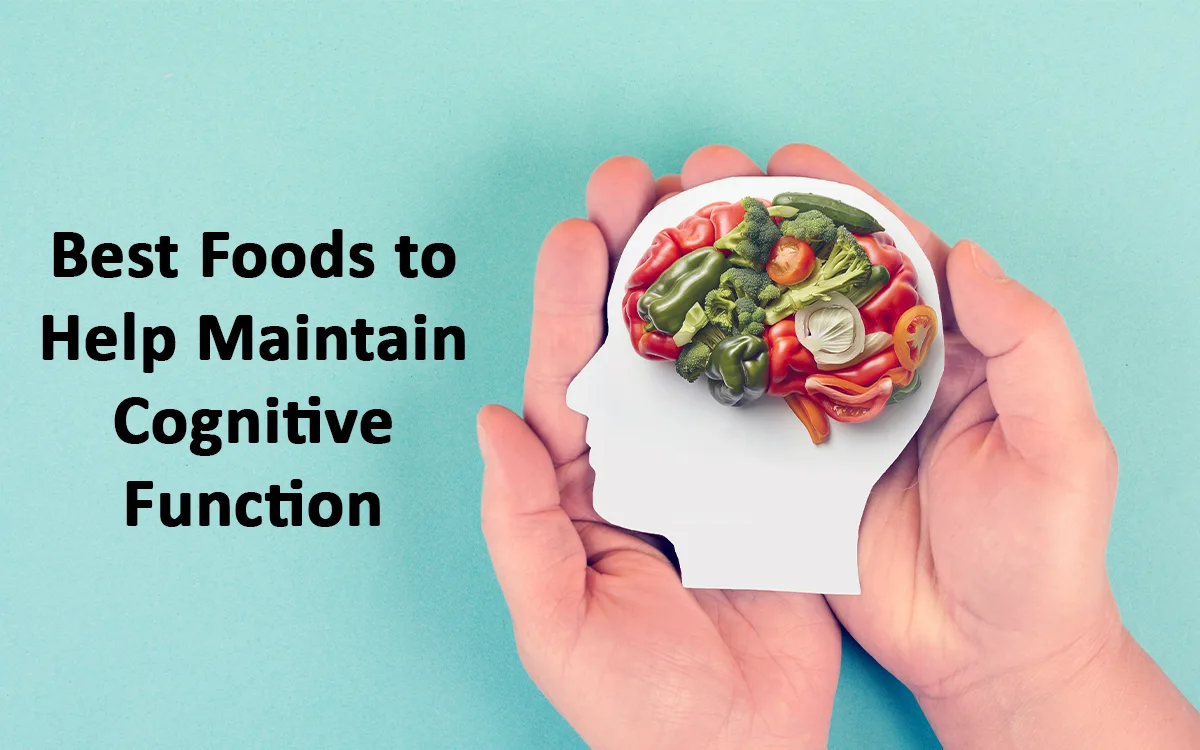The human brain is a powerhouse that requires proper nourishment to function at its best. Just like the body, the brain depends on essential nutrients to support brain cells, memory, and overall cognitive function. Research suggests that what you eat can help maintain brain health in both the short term and as you age. From sources of omega-3 fatty acids to powerful antioxidants found in plant-based foods, certain nutrients may help ease cognitive decline and support brain development.
If you’re looking to keep your mind sharp and maintain a healthy brain, adding the right foods to your diet can be a great step. Here are some of the top brain foods to consider.
Fatty Fish: A Key to a Nourished Brain
Oily fish such as salmon, mackerel, sardines, and trout are some of the best sources of omega-3 fatty acids. These healthy fats help maintain the structure of brain cells and aid in cognitive performance. Since the brain is made up of nearly 60% fat, omega-3s are essential for its function.
Regularly including fatty fish in meals may help maintain focus and memory. If fish isn’t part of your diet, plant-based alternatives like flaxseeds, chia seeds, walnuts, and algae-based supplements can provide similar benefits.
Leafy Greens: Powerhouses of Essential Nutrients
Dark leafy greens like spinach, kale, and Swiss chard are packed with vitamins, minerals, and antioxidants. These greens contain vitamin K, lutein, and folate, which help support cognitive function.
Research suggests that individuals who regularly consume leafy greens tend to perform better in memory-related tasks. Adding a handful of greens to your daily meals—whether in salads, smoothies, or stir-fries—can help maintain cognitive function over time.
Dark Chocolate: A Sweet Treat for Brain Function
For those who love sweets, dark chocolate can be a delicious way to support brain health. Cocoa contains flavonoids, caffeine, and antioxidants that help maintain focus and cognitive alertness. The flavonoids in dark chocolate may support the flow of oxygen to the brain, which helps with mental performance.
Choosing dark chocolate with at least 70% cocoa ensures a higher concentration of beneficial nutrients. Enjoying a small piece as a daily treat can be a tasty and beneficial habit.
Pumpkin Seeds: Tiny but Mighty Nutrient Sources
Pumpkin seeds are packed with brain-friendly nutrients such as magnesium, zinc, iron, and copper. These minerals help with nerve function and may support memory and learning abilities.
Zinc, in particular, plays a role in brain signaling, while magnesium contributes to relaxation and mental clarity. Including a handful of pumpkin seeds in snacks, salads, or smoothies is a simple way to add these benefits to your diet.
Berries: A Natural Brain Booster
Berries like blueberries, strawberries, and blackberries are rich in antioxidants that help ease the effects of free radicals. Free radicals can contribute to aging and cognitive discomforts, so adding antioxidant-rich foods to your diet may help maintain long-term brain function.
The natural compounds in berries may also help with communication between brain cells, supporting cognitive function and memory. Enjoying a bowl of mixed berries in the morning or as an afternoon snack can be a refreshing way to nourish the brain.
Nuts: A Crunchy Source of Brain-Healthy Fats
Nuts, especially walnuts, almonds, and hazelnuts, provide healthy fats, vitamin E, and plant-based protein. Vitamin E is known to help maintain cognitive performance by protecting brain cells from oxidative stress.
Walnuts, in particular, contain omega-3 fatty acids, making them an excellent plant-based option for brain nourishment. A small handful of mixed nuts can serve as a satisfying snack while also benefiting brain function.
Eggs: A Versatile Brain Food
Eggs are a great source of choline, a nutrient that supports brain health. Choline plays a role in the production of acetylcholine, a neurotransmitter associated with memory and mood.
Eggs also contain B vitamins, which help ease mental fatigue and support cognitive function. Whether scrambled, boiled, or in an omelet, eggs make for a nutritious and versatile addition to meals.
Green Tea: A Soothing Brain Supporter
Green tea contains caffeine and L-theanine, a combination that can help maintain alertness while promoting relaxation. Unlike coffee, green tea provides a steady release of energy without sudden crashes.
The antioxidants in green tea may also support overall brain function. Drinking a warm cup of green tea during the day can be both refreshing and beneficial for cognitive clarity.
Whole Grains: A Steady Energy Source for the Brain
Whole grains like oats, quinoa, brown rice, and whole wheat provide a steady release of glucose into the circulation. The brain relies on this steady energy supply to function properly.
Including whole grains in meals can help maintain mental alertness throughout the day. Swapping refined grains for whole-grain alternatives can be an easy way to support brain function over time.
Conclusion
Supporting cognitive function starts with making mindful food choices. From omega-3-rich fatty fish to antioxidant-packed berries and brain-friendly nuts, a well-balanced diet plays a key role in brain health.
Incorporating a variety of these brain foods into your daily routine can help maintain focus, memory, and overall cognitive performance. Whether you’re adding leafy greens to your meals, snacking on dark chocolate, or sipping on green tea, these small dietary adjustments can make a meaningful impact on your brain’s well-being.
By choosing nutrient-dense foods, you can nourish both your body and mind for years to come.
Check Out This Bog: The Food-Mood Connection: Can What You Eat Influence Your Emotional Well-Being?

